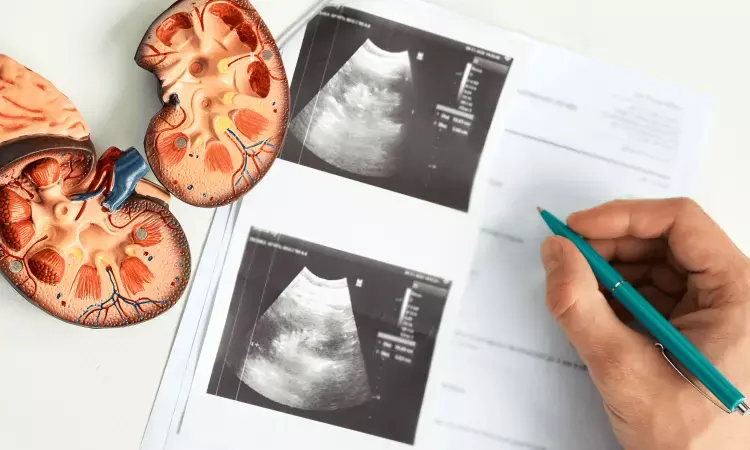- Home
- Medical news & Guidelines
- Anesthesiology
- Cardiology and CTVS
- Critical Care
- Dentistry
- Dermatology
- Diabetes and Endocrinology
- ENT
- Gastroenterology
- Medicine
- Nephrology
- Neurology
- Obstretics-Gynaecology
- Oncology
- Ophthalmology
- Orthopaedics
- Pediatrics-Neonatology
- Psychiatry
- Pulmonology
- Radiology
- Surgery
- Urology
- Laboratory Medicine
- Diet
- Nursing
- Paramedical
- Physiotherapy
- Health news
- Fact Check
- Bone Health Fact Check
- Brain Health Fact Check
- Cancer Related Fact Check
- Child Care Fact Check
- Dental and oral health fact check
- Diabetes and metabolic health fact check
- Diet and Nutrition Fact Check
- Eye and ENT Care Fact Check
- Fitness fact check
- Gut health fact check
- Heart health fact check
- Kidney health fact check
- Medical education fact check
- Men's health fact check
- Respiratory fact check
- Skin and hair care fact check
- Vaccine and Immunization fact check
- Women's health fact check
- AYUSH
- State News
- Andaman and Nicobar Islands
- Andhra Pradesh
- Arunachal Pradesh
- Assam
- Bihar
- Chandigarh
- Chattisgarh
- Dadra and Nagar Haveli
- Daman and Diu
- Delhi
- Goa
- Gujarat
- Haryana
- Himachal Pradesh
- Jammu & Kashmir
- Jharkhand
- Karnataka
- Kerala
- Ladakh
- Lakshadweep
- Madhya Pradesh
- Maharashtra
- Manipur
- Meghalaya
- Mizoram
- Nagaland
- Odisha
- Puducherry
- Punjab
- Rajasthan
- Sikkim
- Tamil Nadu
- Telangana
- Tripura
- Uttar Pradesh
- Uttrakhand
- West Bengal
- Medical Education
- Industry
Constipation may be associated with pyelonephritis and recurrent UTI in girls

Denmark: A recent study has concluded that in children, primarily girls 4-18 years, Constipation is associated with pyelonephritis and recurrent UTI (urinary tract infection). These children didn't have any history of kidney or urinary tract abnormalities.
These findings are published in Acta Paediatrica.
The researchers recommended that systematic evaluation of bowel and bladder function is essential in children aged >4 years after 1st-time pyelonephritis.
It is already known that in childhood, Acute pyelonephritis is the most common bacterial infection. This condition is potentially severe and leads to renal scarring, kidney function loss and hypertension. There is a scarcity of data on risk factors associated with pyelonephritis and recurrent UTIs in children without kidney or urinary tract abnormalities.
Considering this, a study was conducted to identify,
What are the risk factors associated with pyelonephritis in children without kidney or urinary tract abnormalities?
The lead researcher was Dr Sophie from the Department of Pediatrics and Adolescent Medicine and Centre for Research and Education, Gødstrup Hospital, Herning, Denmark.
The critical points of the study are:
- The retrospective analyses of children's medical records (4–18 years) with a history of 1st-time pyelonephritis were done ( 2016 to 2021).
- Children with abnormal kidney ultrasounds were not included in the study.
- Bladder and bowel function information was extracted with fluid intake habits under demographic data.
- One hundred five patients had first-time pyelonephritis.
- As per Rome IV criteria, 47 % of children were diagnosed with Constipation.
- The mean follow-up period was of 167 days.
- The mean fluid intake was 1169 ml/day, and the mean voiding frequency was six times/day.
- There was a positive association between Constipation and recurrent urinary tract infection with a significant p-value.
The researchers wrote in our study 47% of the enrolled children had Constipation which is considerably higher than the estimated prevalence of Constipation in childhood, constituting 16%.
They added we utilised the systematic follow-up for children with 1st-time pyelonephritis after four years of age for risk factors identified.
We identified children with Constipation in large numbers, so we believe that a systematic follow-up programme is essential for children after their 1st time pyelonephritis so that the risk of UTI is reduced with subsequent renal scarring.
In our study, we observed a high incidence of Daytime Urinary Incontinence and Enuresis Nocturna in our cohort compared to the background population, so it is recommendable to evaluate both bowel and bladder function in all children after 1st-time pyelonephritis.
The researchers acknowledged Marie-Louise E. Andersen, MD, PhD, for helping identify the children for the present study.
Further reading:
Functional Constipation as a risk factor for pyelonephritis and recurrent urinary tract infection in children. Sofie Axelgaard et al.
BDS, MDS in Periodontics and Implantology
Dr. Aditi Yadav is a BDS, MDS in Periodontics and Implantology. She has a clinical experience of 5 years as a laser dental surgeon. She also has a Diploma in clinical research and pharmacovigilance and is a Certified data scientist. She is currently working as a content developer in e-health services. Dr. Yadav has a keen interest in Medical Journalism and is actively involved in Medical Research writing.
Dr Kamal Kant Kohli-MBBS, DTCD- a chest specialist with more than 30 years of practice and a flair for writing clinical articles, Dr Kamal Kant Kohli joined Medical Dialogues as a Chief Editor of Medical News. Besides writing articles, as an editor, he proofreads and verifies all the medical content published on Medical Dialogues including those coming from journals, studies,medical conferences,guidelines etc. Email: drkohli@medicaldialogues.in. Contact no. 011-43720751


